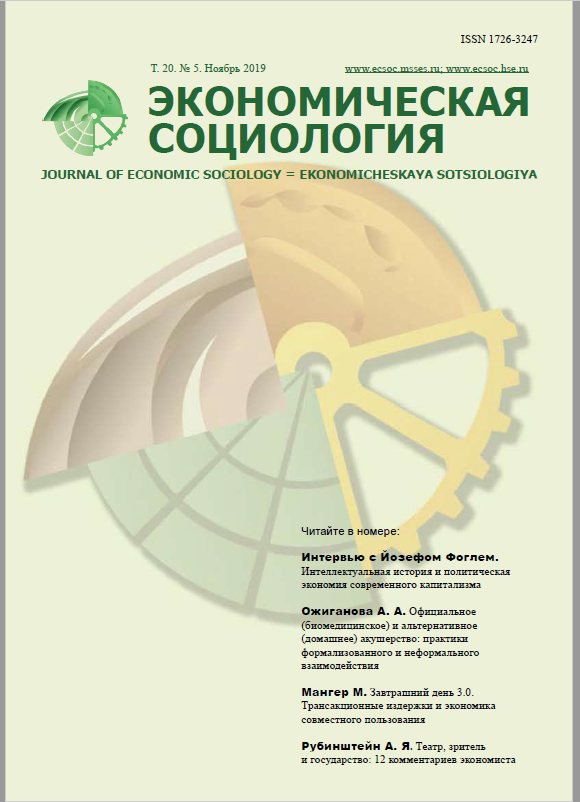Official (Biomedical) Obstetrics and Alternative (Home) Midwifery: Formalized and Informal Interaction Practices
Abstract
The article discusses the interaction practices between the formal system of obstetric aid and alternative (home) midwifery, which together constitute a continuum of formal and informal in the sphere of medical services. For the analysis of these practices, I turn to critical medical anthropology and such important concepts for this research area as resistance to medicalization and medical pluralism. I also rely on the social studies of public health that regard it as an organizational field in which different types of institutional logics compete and come into the conflict: professional, state (or bureaucratic), and managerial.
In the first part of the article, I show that the care in a home birth can be provided by both amateur midwives and certified medical specialists, such as obstetrician-gynecologists and midwives of the maternity hospitals, although in Russia, this activity qualifies as illegal. In the second part of the article, I discuss how, as a result of the conflict of institutional logics reinforced by several waves of health care reforms, various options have emerged for the formalized interaction of home midwives with maternity hospitals. At present, the most common practice is the part-time employment of midwives in the commercial departments of state maternity hospitals. The third part of the article is devoted to the analysis of the informal interaction of domestic midwives with maternity hospitals. I show that these practices arise in place of serious institutional gaps in the system and represent attempts to organize natural childbirth within the framework of the free-of-charge state medicine. In general, it can be argued that the dominant biomedical models of obstetric care and alternative midwifery do not exist in isolation from each other, but instead create complex and contradictory relationships of cooperation, confrontation, and competition. The study is based on in-depth interviews with home midwives, obstetrician-gynecologists and midwives working in maternity hospitals, as well as with women with home birth experience.













